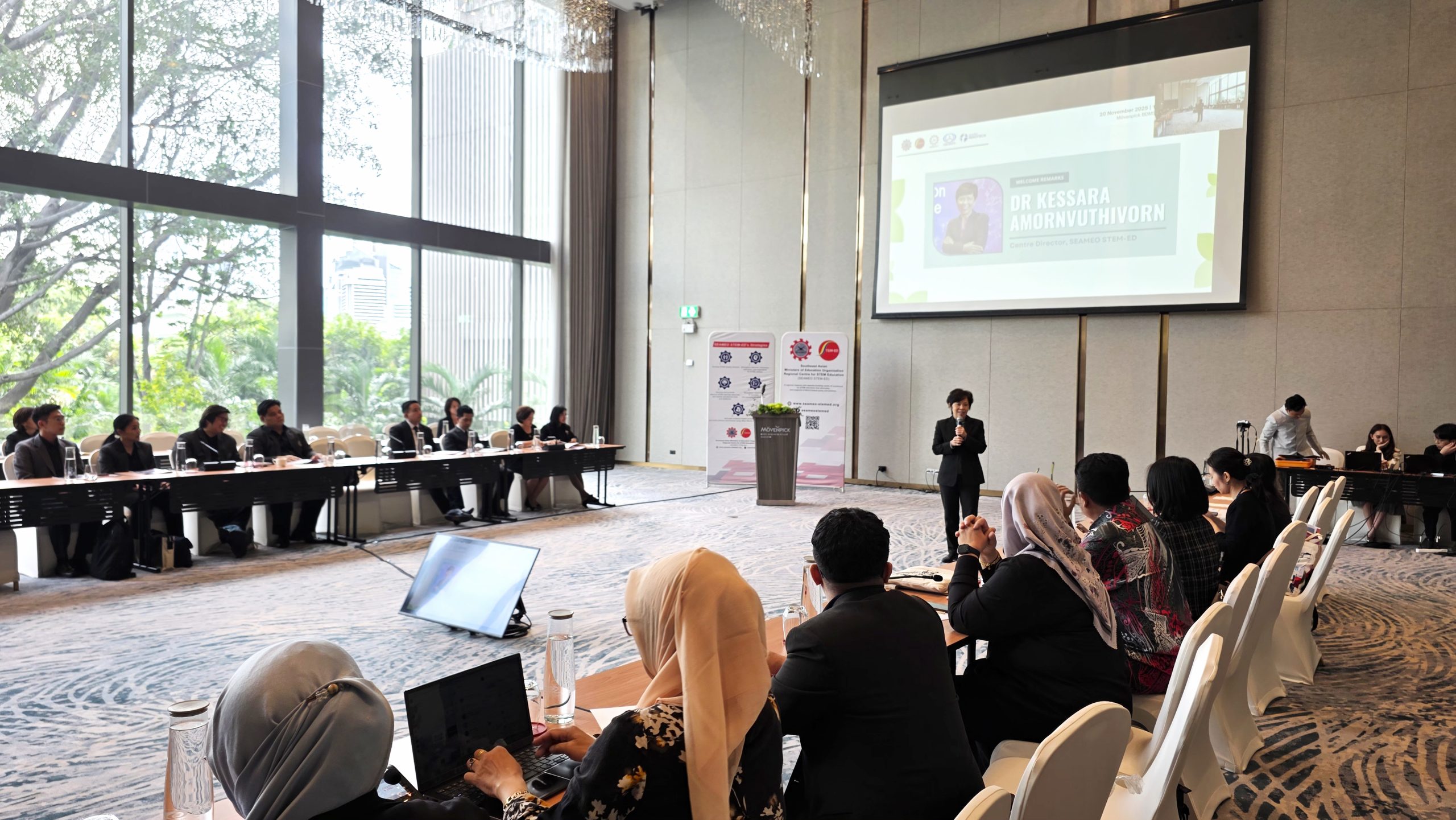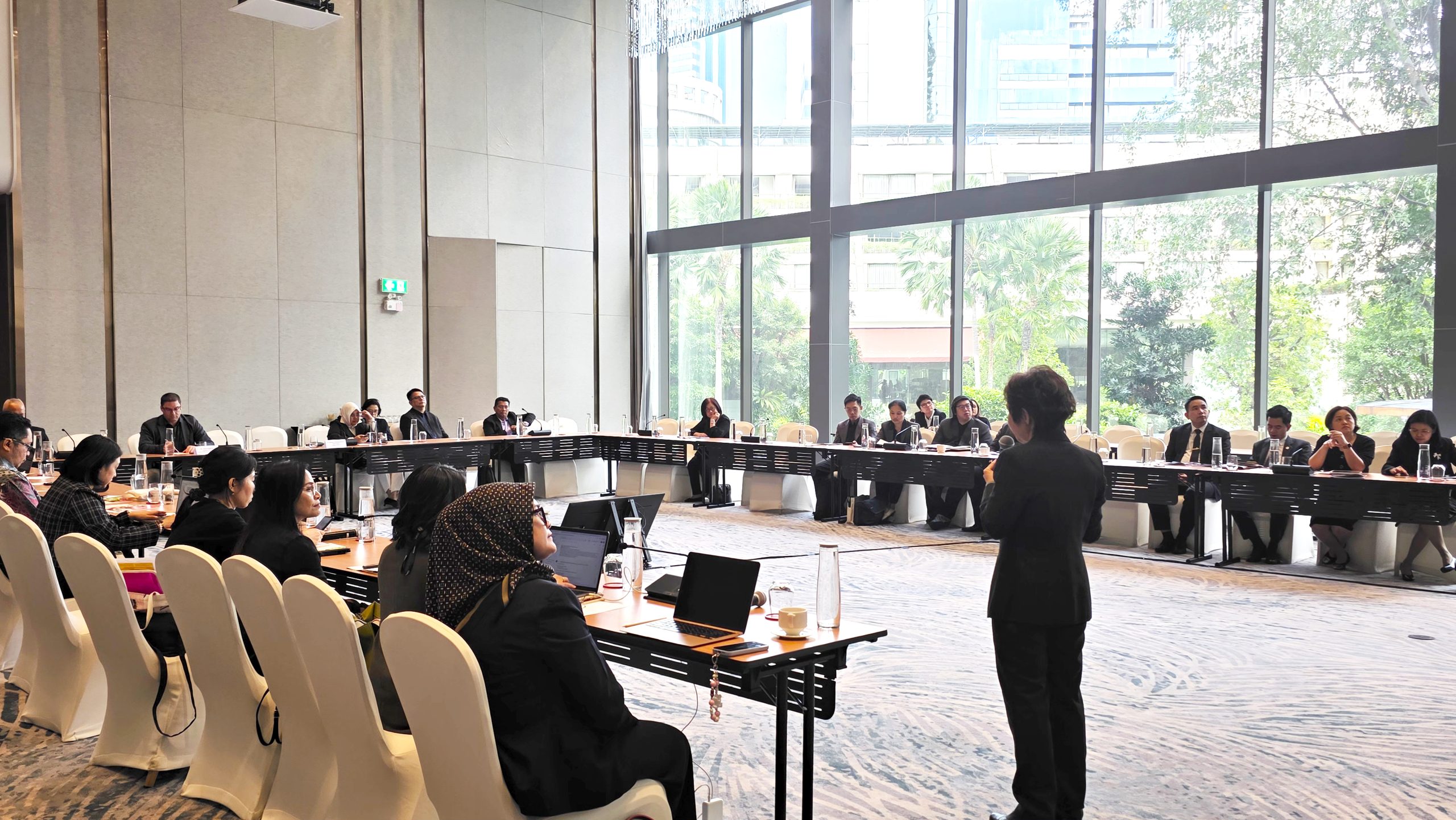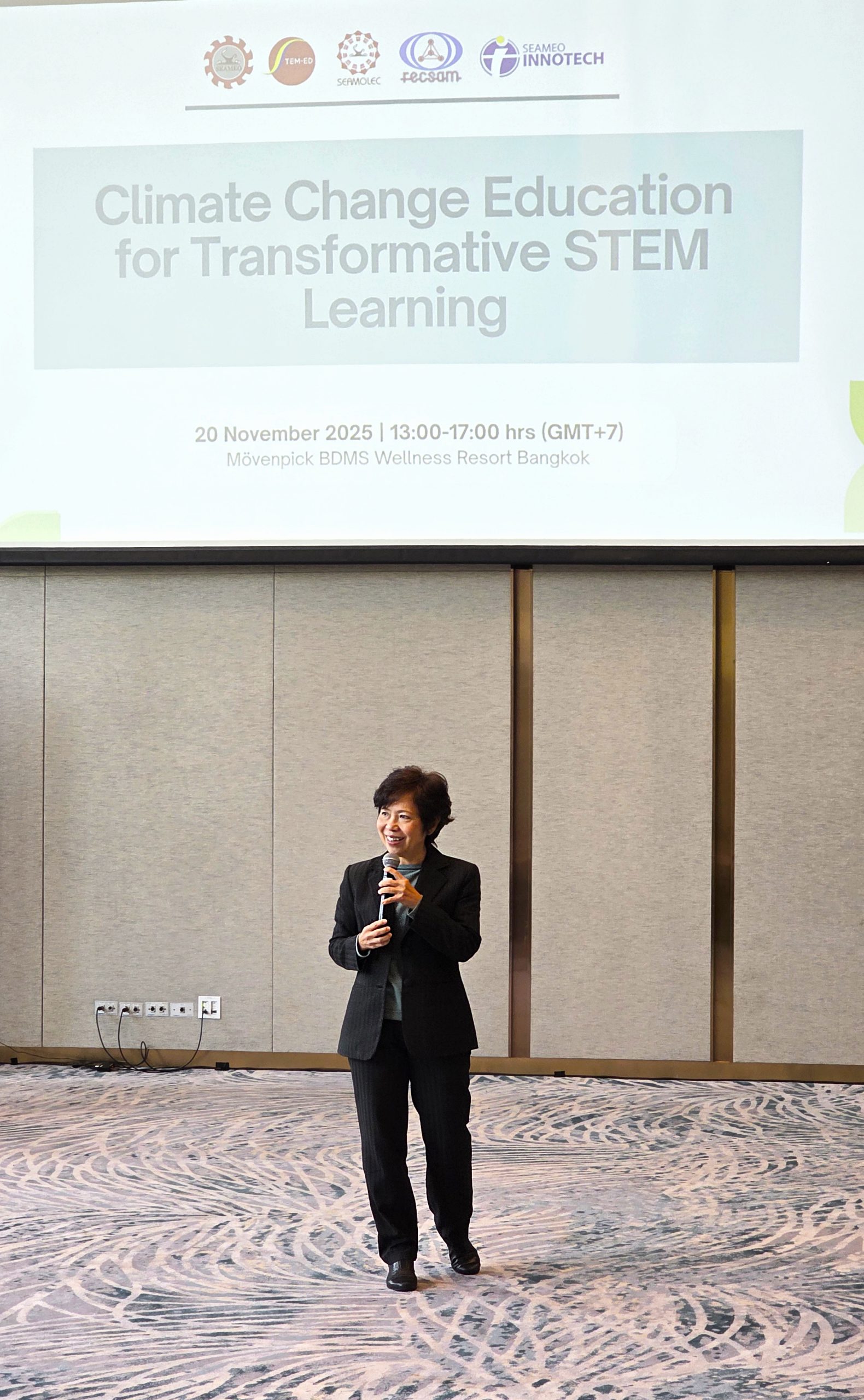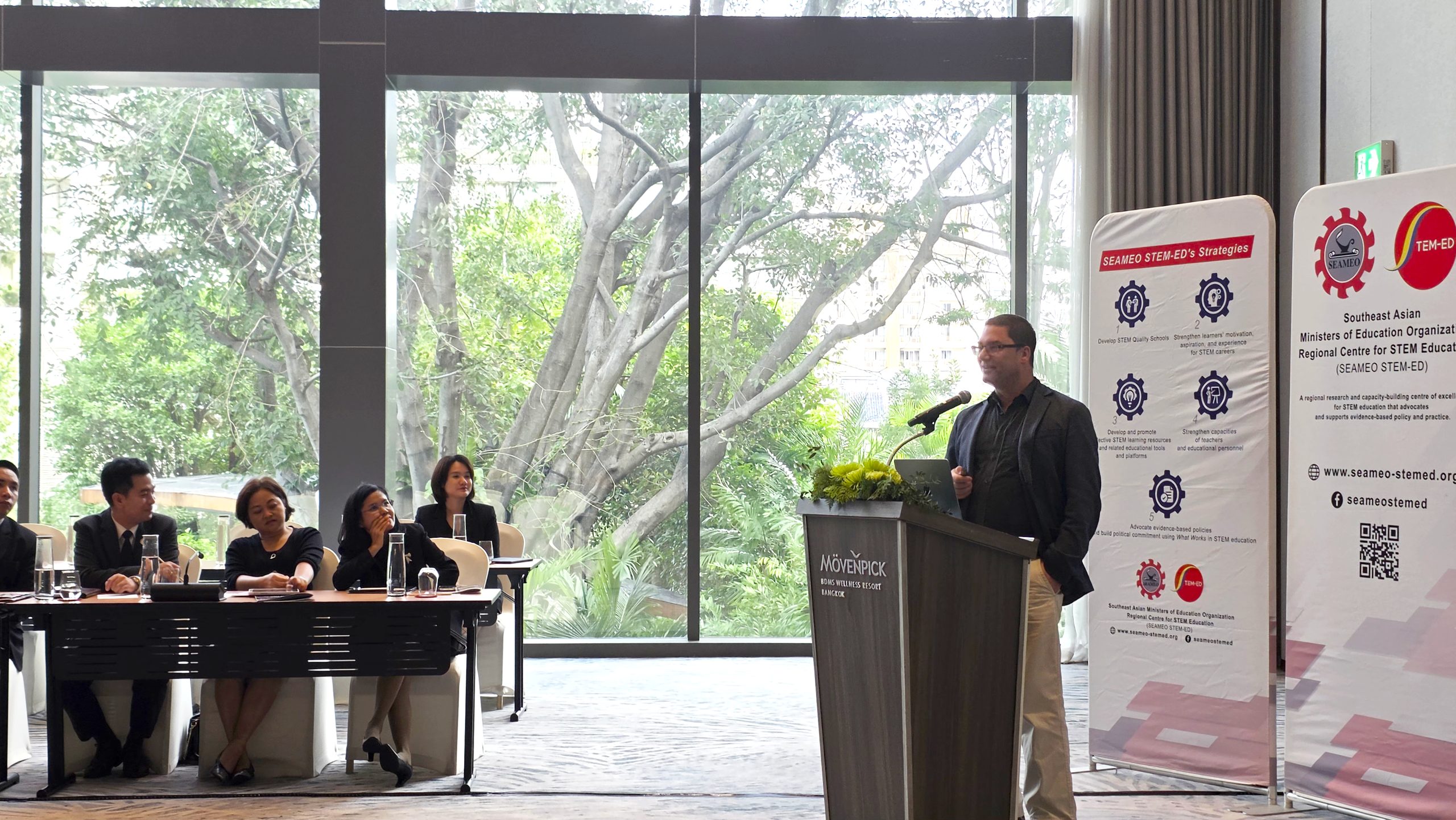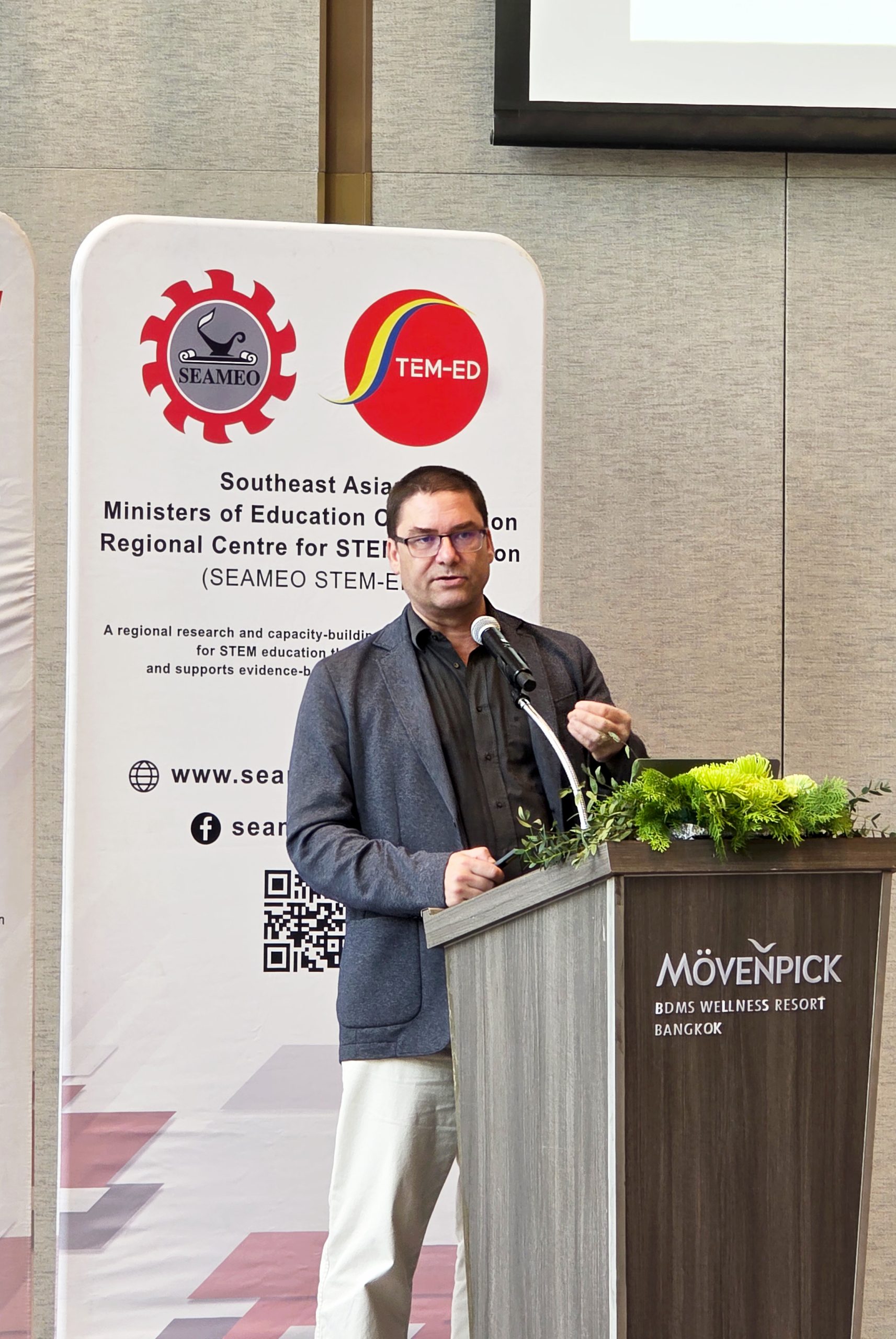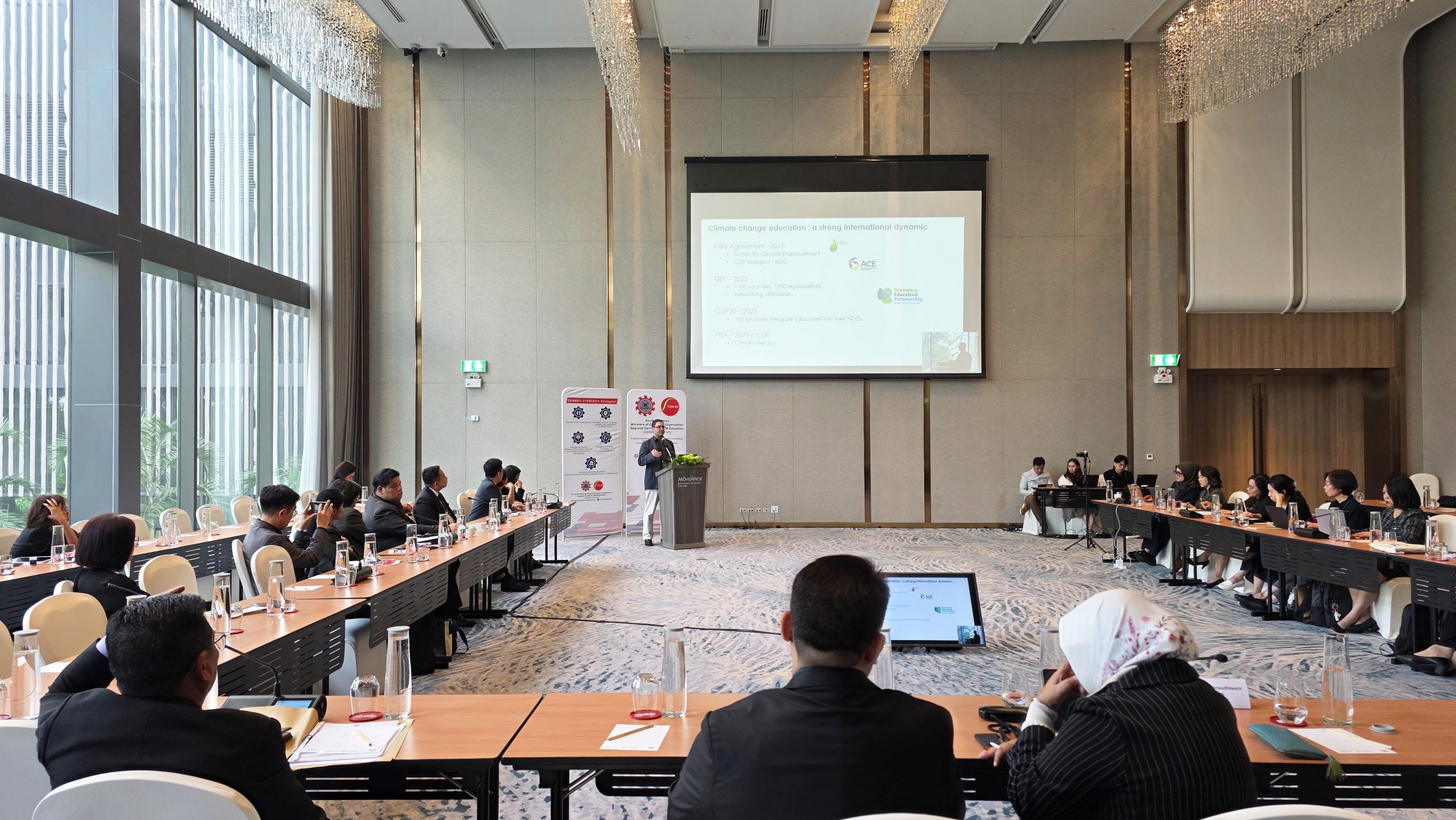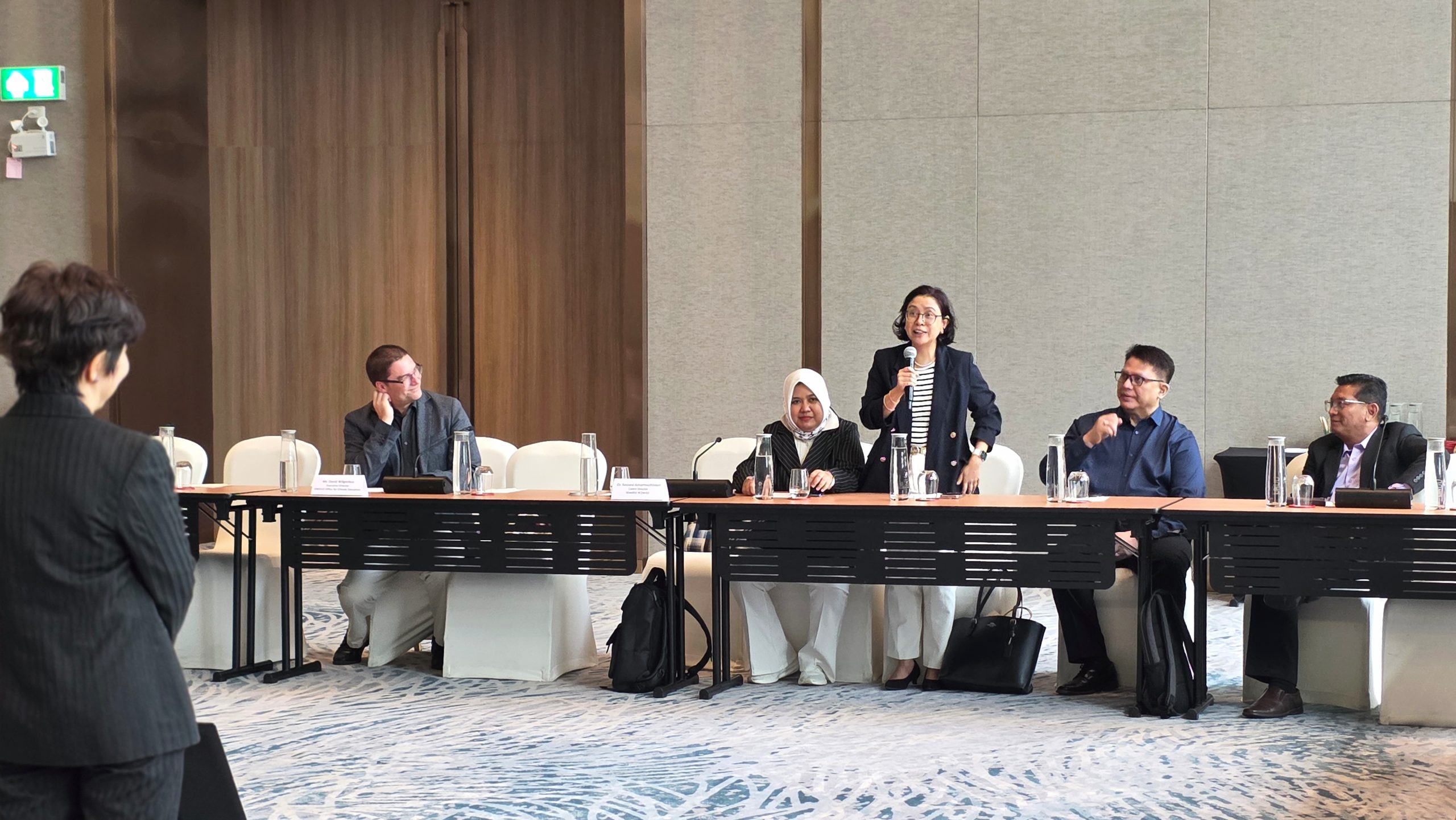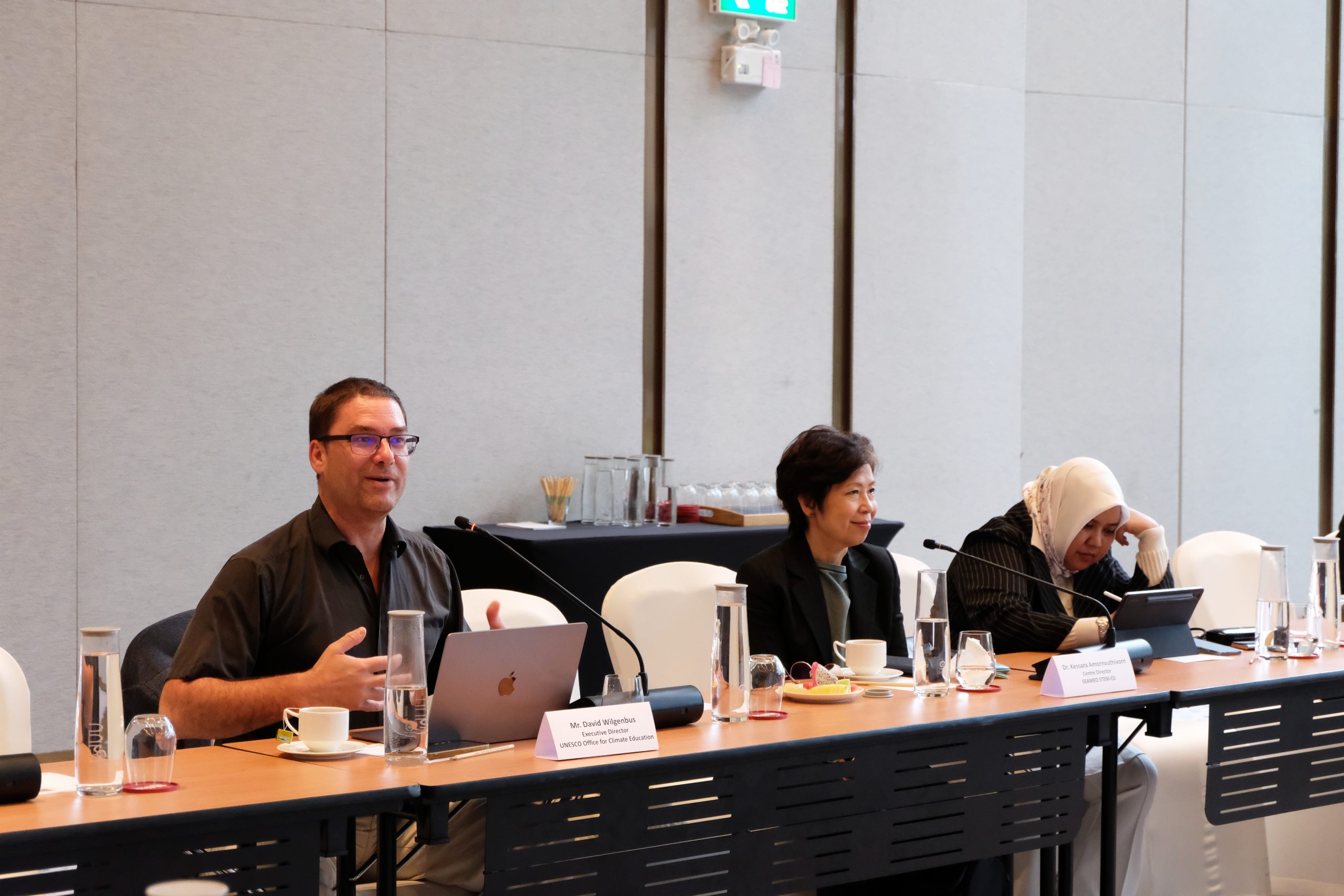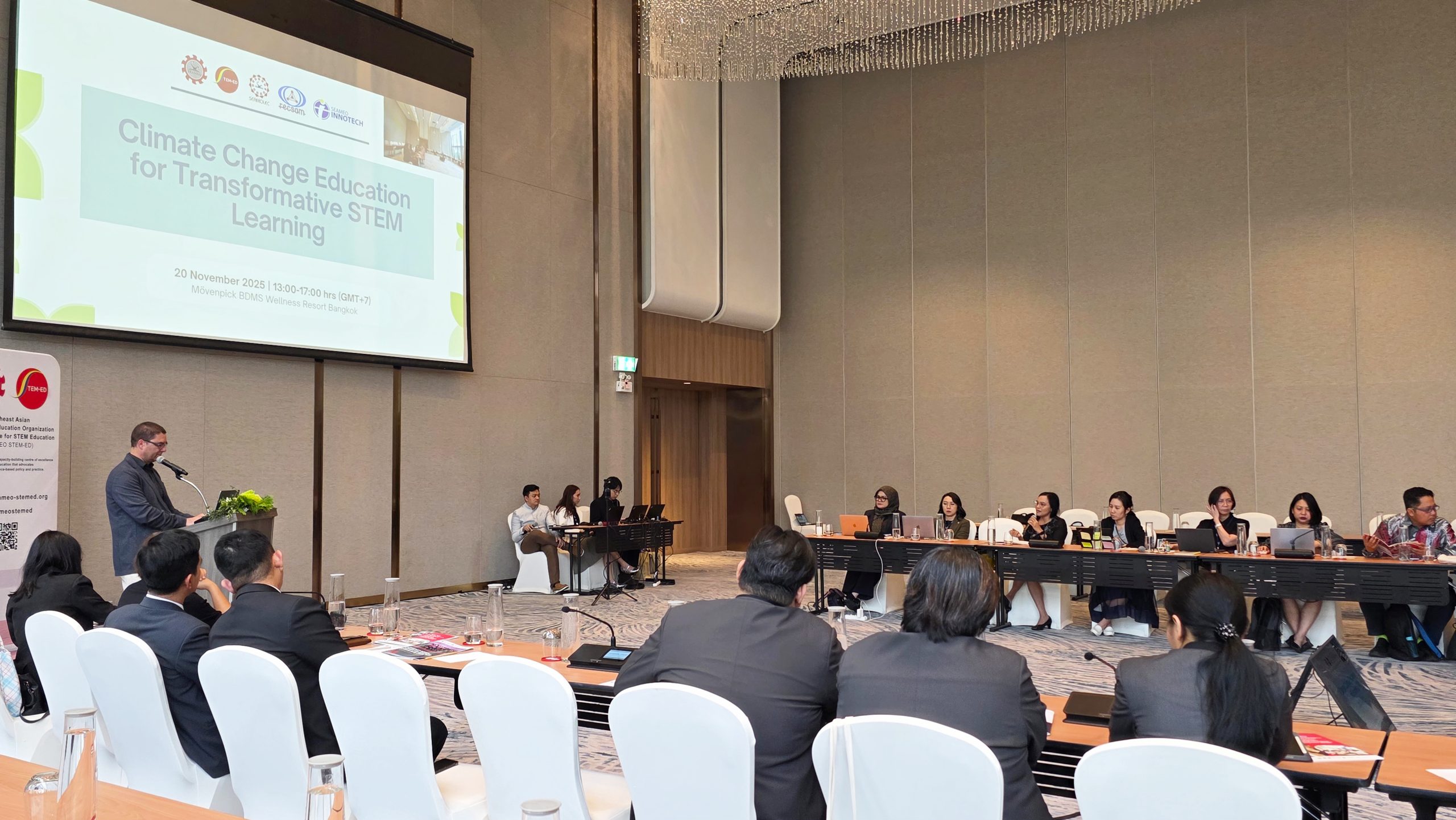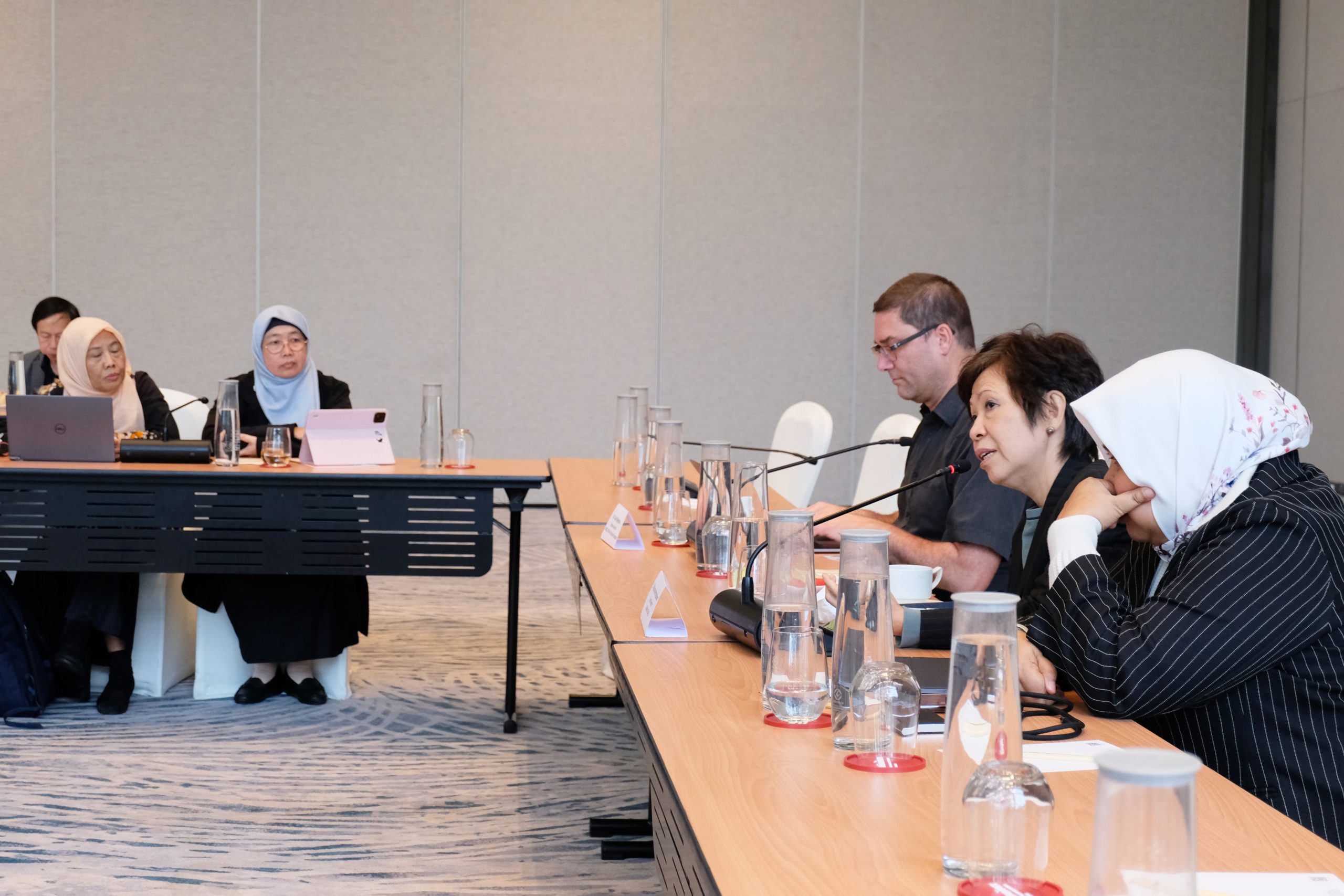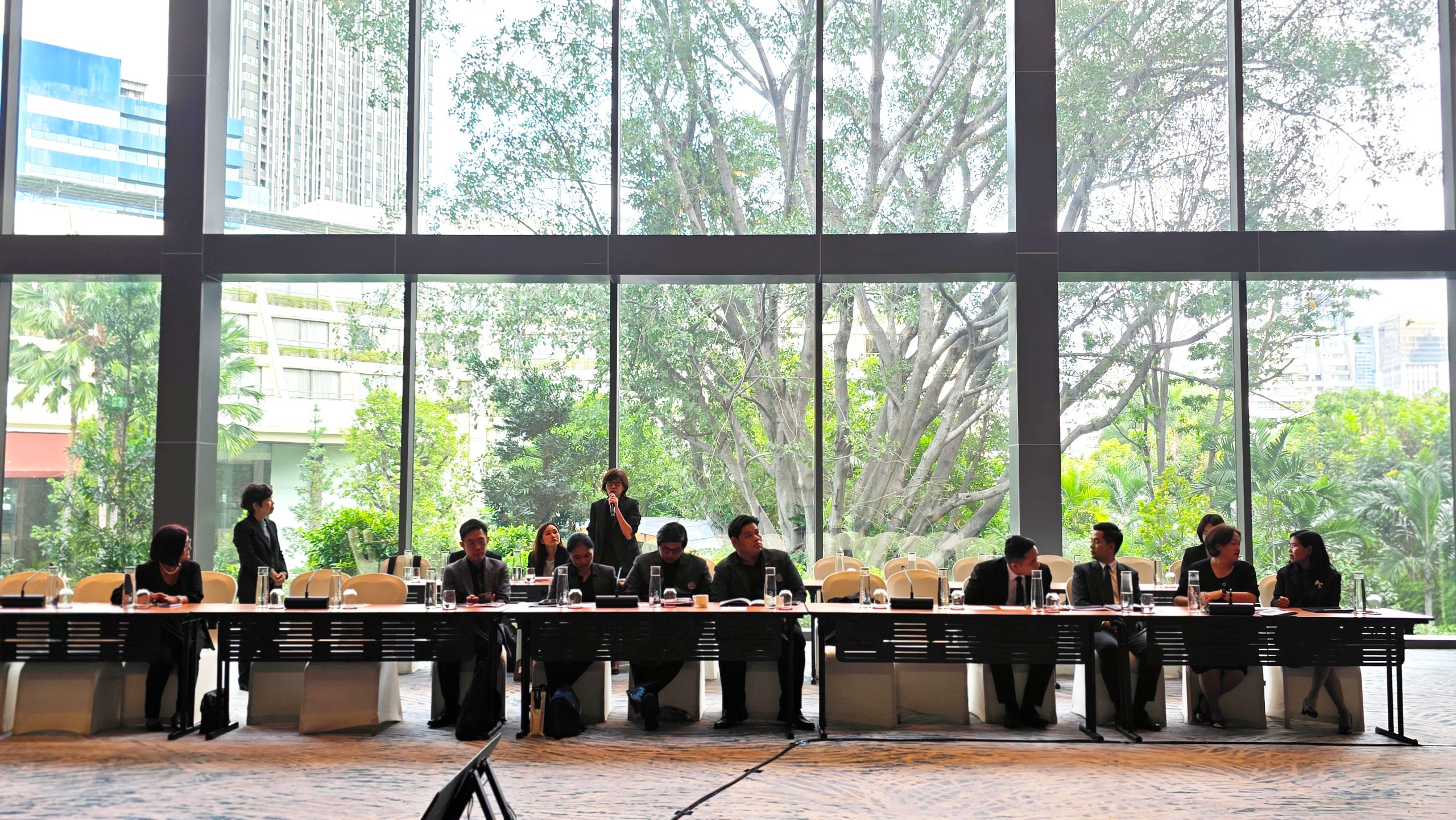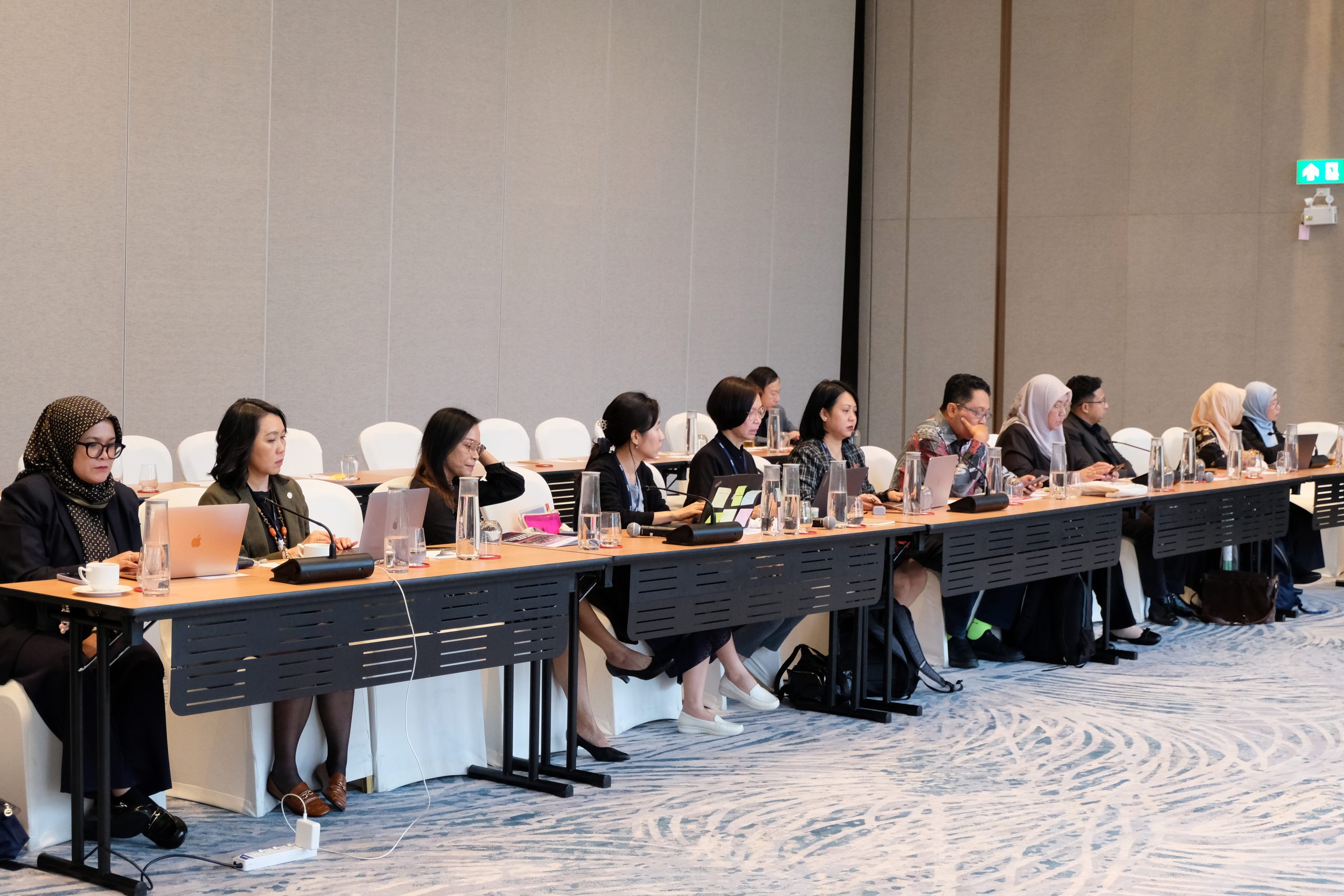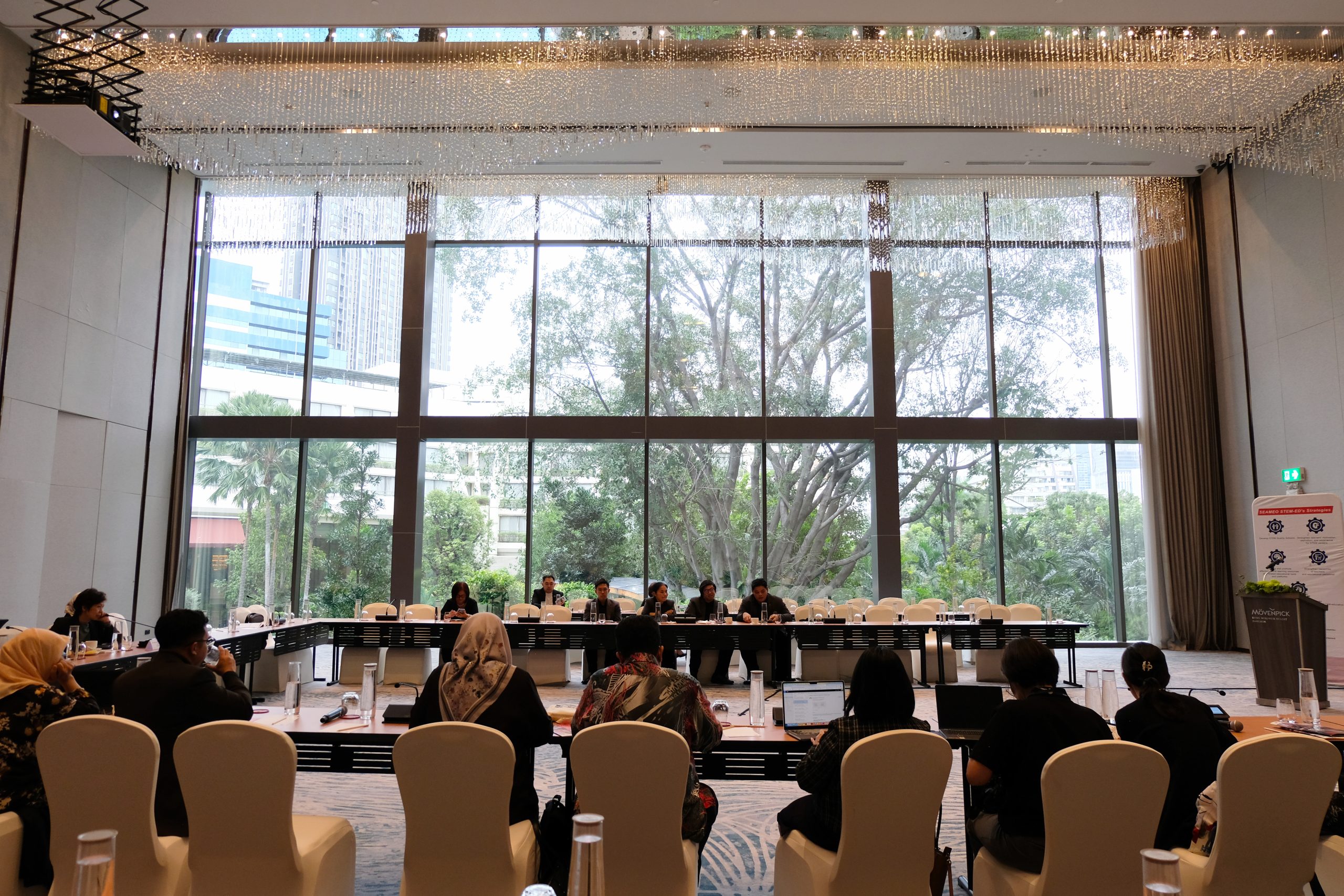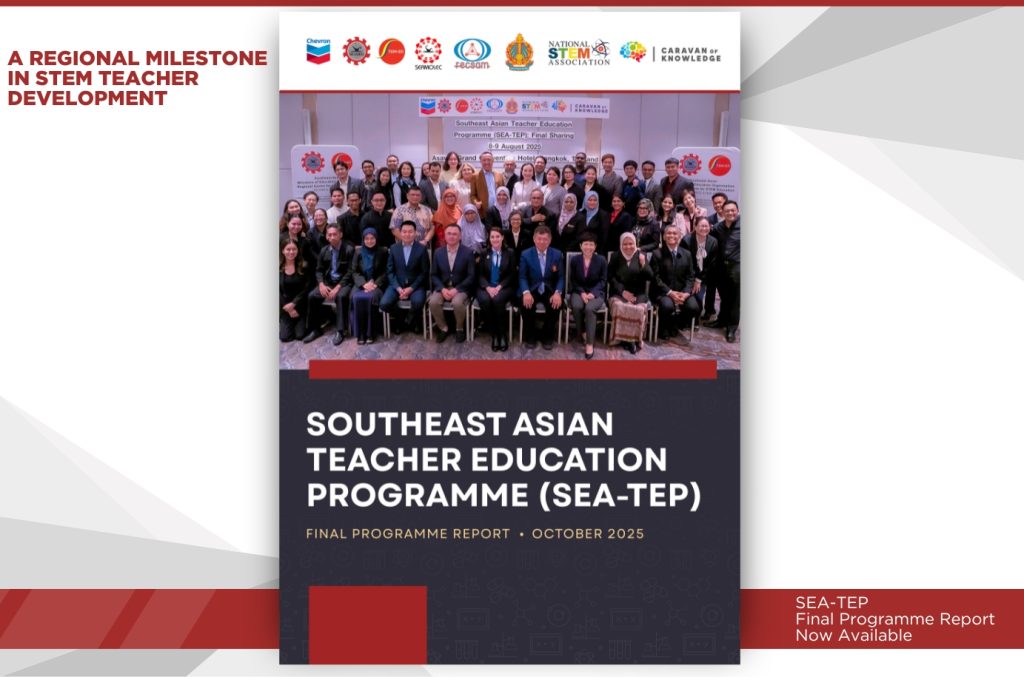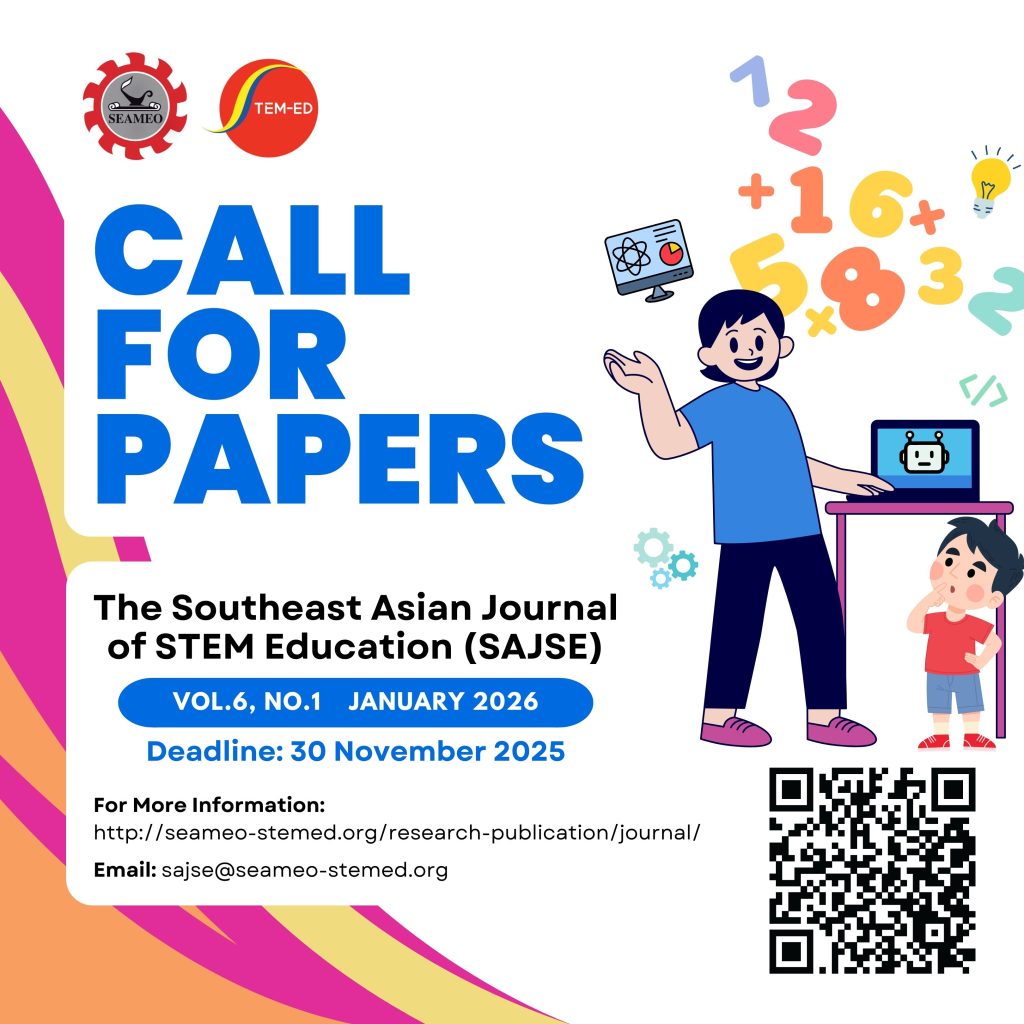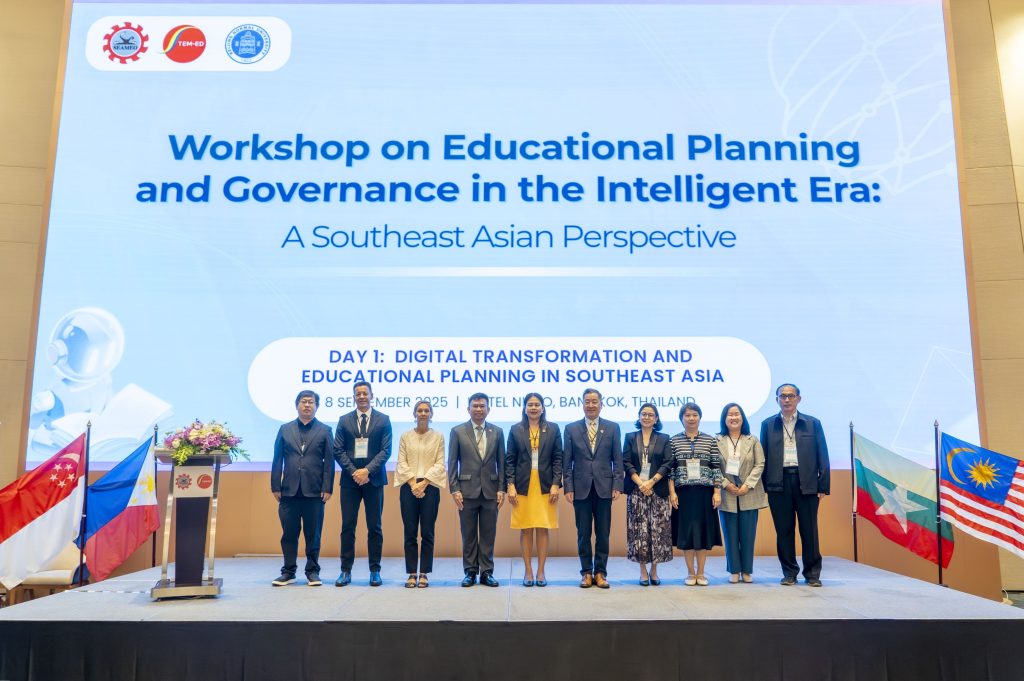- November 24, 2025
SEAMEO ICC 2025: Transforming STEM Learning with Climate Education

Bangkok – The Southeast Asian Ministers of Education Organization (SEAMEO) Inter-Centre Collaboration (ICC) Initiatives continue to serve as a key platform for strengthening partnerships among SEAMEO Centres and international stakeholders, with a focus on advancing innovative, sustainable, and contextually relevant education programmes.
The ICC meeting on 20 November 2025 brought together SEAMEO STEM-ED, partnering SEAMEO regional centres, educators, and global collaborators, including the Office for Climate Education (OCE), under the auspices of UNESCO to align strategies for STEM leadership, climate change education, and teacher professional development. The gathering provided an opportunity to exchange regional experiences, share best practices, and identify actionable approaches for integrating sustainable STEM and climate learning.
The programme opened with welcome remarks from Dr Kessara Amornvuthivorn, Centre Director of SEAMEO STEM-ED, followed by an overview of the SEA-TEP Sustainable Programmes. These included key initiatives such as STEM Education Leadership for Change and the SEAMEO Climate Change Education (SCCE) Learning & Innovation Hubs, aimed at empowering educators and strengthening capacity for transformative STEM learning.
The keynote session, Climate Change Education for Transformative STEM Learning, was delivered by Mr David Wilgenbus, Executive Director of OCE. He introduced OCE’s mission and global programmes, highlighting efforts to support teachers, policymakers, and curriculum developers in advancing climate literacy.
Mr Wilgenbus noted an ongoing gap between awareness and implementation of climate education in schools. While climate change is widely recognised as a critical issue, only a fraction of teachers currently integrates it into classroom instruction, leaving many students without a comprehensive understanding of its systemic challenges. He emphasised that teacher training is key to address this gap and to equip educators with the skills and confidence to deliver effective climate education.
He stressed that climate change education should not adhere solely to science-based instruction, noting that a purely scientific focus can be counterproductive, failing to change behaviors and potentially generating anxiety among students. Instead, he advocated for a content-based, interdisciplinary approach that combines a strong scientific framework with humanities, arts, and project-based learning. This approach is essential for fostering self-efficacy, the critical trust in one’s ability to act. Mr Wilgenbus recommended initiating projects with modest, achievable goals to allow students to experience cumulative successes, thereby reinforcing confidence and transforming eco-anxiety into actionable agency.
Highlighting OCE’s global work, he reported that the organisation has trained more than 100,000 teachers and reached millions of students across 30 countries, applying a model that integrates scientific rigor, interdisciplinary perspectives, and active learning. A significant development discussed during the keynote was the inclusion of climate literacy in the 2029 PISA assessment, a move expected to drive education systems worldwide to incorporate climate change content more systematically and strengthen teacher preparation.
Mr Wilgenbus also shared international examples, such as the ALEC project in Latin America, demonstrating how locally adapted resources, sustained teacher training, and feedback mechanisms can generate scalable impacts and even influence curriculum reform.
Following the keynote, participants joined a roundtable dialogue on integrating STEM and climate change education into teacher professional development. Partners reflected on existing practices, explored opportunities for resource localisation, and discussed directions for sustained regional collaboration. The discussion underscored the value of shared expertise, contextualised approaches, and capacity-building to enhance educational impact across the region.
The meeting concluded with forward-looking reflections, reaffirming SEAMEO STEM-ED and its regional partners’ commitment to strengthening inter-centre collaboration and deepening engagement with OCE to advance STEM and climate change education across Southeast Asia.
SEAMEO STEM-ED expressed appreciation to all speakers, partners, and participants, and looks forward to continued cooperation and innovation in regional STEM and climate education initiatives.
📺 Re-watch the keynote session here: https://youtube.com/live/sOw0x88sfck?feature=share
